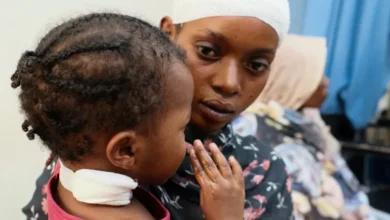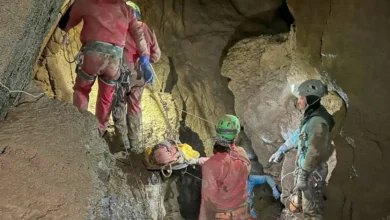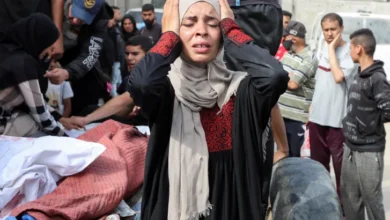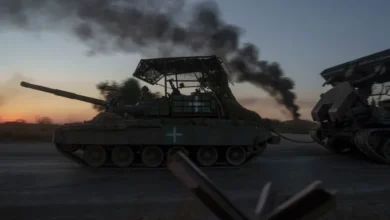Survivors: ‘Greek coastguard was next to us when boat capsized’

As soon as the overloaded fishing trawler set off from Libya last month, the danger seemed obvious to Ahmed*, a 21-year-old Syrian.“We were sitting next to each other, and there was a constant fear of sinking.”
On the derelict blue ship that was soon to hit international headlines, he saw about 750 people crammed together, shoulder-to-shoulder, unable to move. They had all hoped to eventually reach Europe.
In a few days, he would see hundreds of these people drown as a Greek coastguard ship floated nearby.Ahmed fled Syria with his friend Mohammed*, 23. They both asked to use pseudonyms because they fear the Greek government would punish them for speaking out about what they saw that night.
They are two of the 104 survivors of the shipwreck off the coast of Pylos, Greece. Seventy-eight people have been confirmed dead.
Like hundreds of other people on board, their third companion, Mohammed’s cousin, was never found.
Their path to the central Mediterranean was taken in many steps. Ahmed and Mohammed said they left home hoping for a future without violence.
They spent about a month in Libya, where smugglers kept them closed up in an apartment with Egyptians, Pakistanis and other Syrians also making the journey.
Mohammed said the smugglers beat the Egyptians and Pakistanis, constantly cursing and insulting them.
Finally, in the first days of June, they were told, “You are leaving today.”
They were put on the back of trucks that drove to the shore, were loaded onto small boats and were taken to a trawler, the Adriana, out in deeper waters.
“They were beating people there,” Ahmed said.
“They were beating them while taking them to the lower deck of the boat. … It was very bad down there. It smelled of diesel and fish. You couldn’t breathe.”
Ahmed and his companions managed to pay a bribe of $200 to get themselves a spot on the upper deck.Finally, in the first days of June, they were told, “You are leaving today.”
They were put on the back of trucks that drove to the shore, were loaded onto small boats and were taken to a trawler, the Adriana, out in deeper waters.
“They were beating people there,” Ahmed said.
“They were beating them while taking them to the lower deck of the boat. … It was very bad down there. It smelled of diesel and fish. You couldn’t breathe.”
Ahmed and his companions managed to pay a bribe of $200 to get themselves a spot on the upper deck.‘People were starting to lose consciousness’
From the second day of the voyage, the boat’s engine started breaking down.
“They would repair it, and after a while, it would break down again,” Mohammed said. “Every time they repaired it, it would stop again after two to three hours.”
After the second day at sea, food and water ran out. Panic began to percolate across the ship.
“At that time, people were starting to lose consciousness,” Ahmed said.
“They were falling on the ground. They were fainting. Some were shaking. We were seeing tens, hundreds of people in this state.”
They heard fights were breaking out all across the boat due to hunger, thirst and fear.
“Me, Ahmed and my relative who is now missing were always trying to keep our spirits up,” Mohammed said. “When someone cried, we made jokes. ‘We will make it,’ we were saying to ourselves. But everyone was going crazy.”
By the fourth day, they heard disturbing news from the hold.










